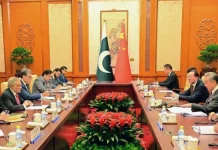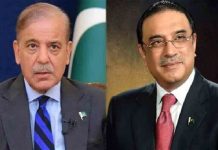From Abid Usman
LAHORE: Inspector General of Police (IG) Punjab has sought a report from regional police officers (RPOs) and CCPO Lahore regarding the use of excessive police force during PTI long march-Azadi March- towards Islamabad on May 25.
According to letters written to the police officials, the IG Punjab asked them to submit a detailed report of anti-terrorism cases registered against PTI leaders and activists, torture against party leaders on May 25, use of expired tear gas shells, and late-night raids at homes.
The letter asked if police had warrants for raids before PTI’s Azadi March and if lady searchers were part of the raids inside homes. It further asked why police force was used in Sheikhupura, Hassan Abdal, and Attock.
The letter further asked the CCPO Lahore to submit a report on torture against Yasmin Rashid, Rashid Khanum and Senator Aijaz Chaudhry and a raid on the residence of Senator Waleed Iqbal.
“On whose orders, the police tortured PTI activists at Ravi bridge,” the letter asked and sought a complete report in this regard.
The letter from IG Punjab further sought a report on harassing journalist Imran Riaz. The district police officers (DPOs) in Faisalabad, Jhang, Toba Tek Singh and Chiniot have been directed to immediately respond to the answers sought in the letter.
PTI Chairman Imran Khan had posted on Twitter a video montage of alleged police brutality on his Azadi marchers on May 25 and termed it “condemnable and unacceptable”.
Imran Khan’s march for Haqeeqi Azadi — true freedom — was preceded by the authorities invoking of Section 144, a measure used to curb gatherings. Shipping containers were put in place on major thoroughfares to block their path.
Undeterred by the moves, the marchers, who tried to force through the containers to make their way to Islamabad, were met with tear gas as police tried to disperse them. Police also charged at them with batons.
“Condemnable and unacceptable,” the former prime minister said on Sunday. “Flouting the Constitution and Supreme Court orders, this criminal imported government unleashed police brutality on our peaceful Azadi March protesters.”
The night before the march, there were subsequent police raids on PTI leaders’ residences. “Night before our march, Punjab and Sindh police violated PTI members’ homes, harassing the families,” he added.
In one such raid carried out on the eve of the march, a policeman was killed. The party and the coalition government blamed each other.
The march ended on March 26 without a sit-in at D-Chowk, which Imran promised would occur until dates for elections are announced. In a speech to supporters just short of D-Chowk, Imran told the government to announce dates for the elections, failing which he would return in six days.
That same day Prime Minister Shehbaz Sharif resisted Imran’s “dictation” and said in a speech in the National Assembly that the House would decide when elections would be held.
The abrupt end to the much-vaunted long march has since triggered speculation on the circumstances that led to its end. However, Imran has hit back at such suggestions, insisting there was “no deal with the establishment”, and that he pulled back to avert “bloodshed”, as his supporters were “ready” and a “sense of hatred” had emerged in the wake of the police response.




